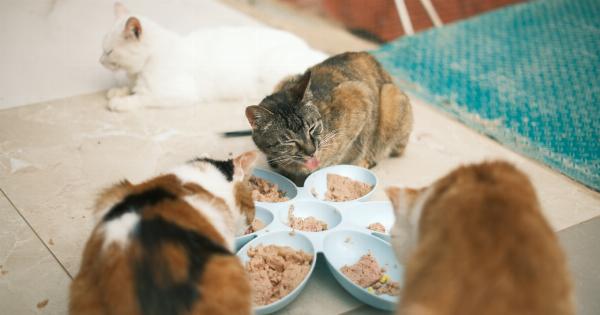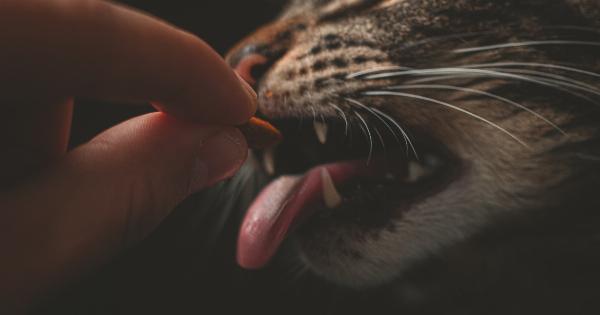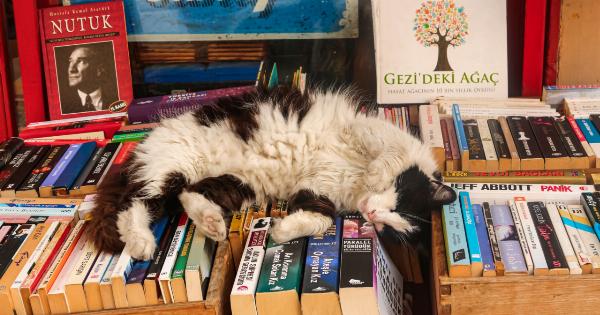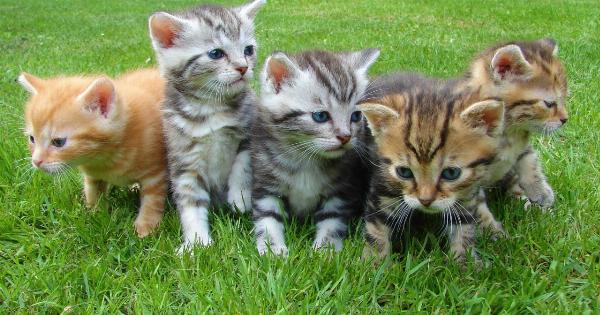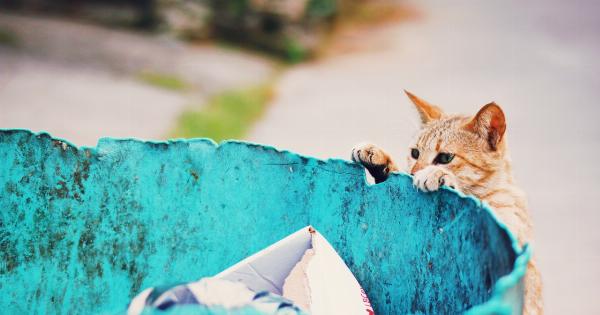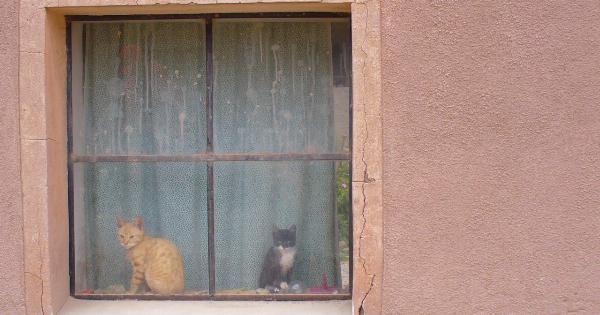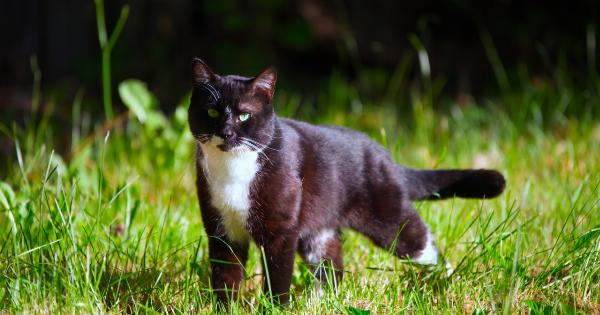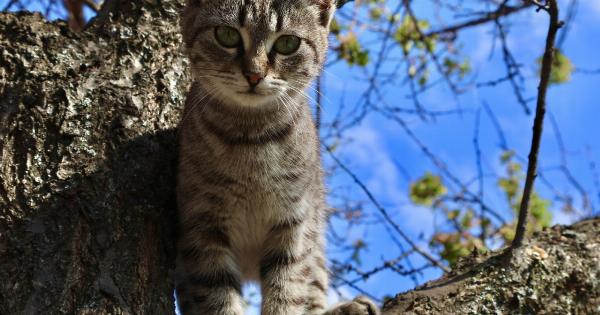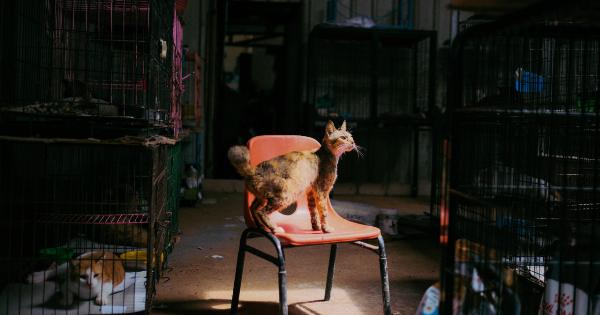Constipation in cats is a common condition and can be caused by several reasons.
Some of the common causes of constipation in cats include dehydration, lack of dietary fiber, obesity, lack of exercise, and underlying medical conditions such as kidney disease, diabetes, and hyperthyroidism. The symptoms of cat constipation include difficulty in passing stools, vomiting, loss of appetite, lethargy, and abdominal pain.
If left untreated, constipation in cats can lead to serious complications such as megacolon, an enlarged colon that makes it even harder for cats to pass stools. In this article, we will discuss 30 foods that can help your constipated cat.
Foods to Help Your Constipated Cat
Feeding your cat with the right type of food is an effective way of combating constipation. To help relieve constipation in your cat, you should provide it with foods that are high in fiber content.
The following are 30 foods known to help constipated cats:.
1. Pumpkin
Pumpkin is one of the most effective natural remedies for cat constipation. It has a high fiber content that helps promote bowel movements and prevent constipation.
Pumpkin is also rich in nutrients like vitamin A, potassium, and iron, which are essential for your cat’s overall health.
2. Brown Rice
Brown rice is an excellent source of fiber that can help your constipated cat. It also contains vitamins B and E, as well as essential minerals like magnesium, which promote healthy bowel movements.
Brown rice is also an excellent source of carbohydrates and can provide your cat with energy and keep them full for longer periods.
3. Oat Bran
Oat bran is rich in dietary fiber and can help promote healthy bowel movements in your cat. It also contains vitamins and minerals that are essential for your cat’s overall health.
You can mix oat bran with your cat’s food or serve it as a treat.
4. Psyllium Husk
Psyllium husk is a natural laxative that helps increase stool bulk and promotes bowel movements. It is a good source of fiber and can help relieve constipation in both cats and humans.
However, you should be careful when feeding your cat psyllium husk and make sure you follow the recommended dosage.
5. Sweet Potato
Sweet potato is a nutritious food that is rich in fiber, vitamins, and minerals. It can help promote healthy bowel movements in cats and prevent constipation.
Sweet potatoes are also low in fat and calories, making them a healthy treat for overweight cats.
6. Broccoli
Broccoli is a cruciferous vegetable that is rich in fiber, vitamins, and minerals. It can help promote healthy bowel movements in cats and prevent constipation. Broccoli is also low in calories and can be a great snack for overweight cats.
7. Apple
Apples are a good source of fiber that can help promote healthy bowel movements in cats. They also contain vitamins and minerals that are essential for your cat’s overall health.
However, you should remove the seeds before feeding your cat apple, as they contain cyanide, which can be toxic to cats.
8. Green Beans
Green beans are a good source of fiber, vitamins, and minerals. They can help promote healthy bowel movements in cats and prevent constipation. Green beans are also low in calories and can be a great snack for overweight cats.
9. Canned Pumpkin
Canned pumpkin is a convenient option for pet owners who want to provide their constipated cat with the benefits of pumpkin. Make sure you choose canned pumpkin that does not contain added sugars or spices.
You can add a tablespoon of canned pumpkin to your cat’s food to help promote healthy bowel movements.
10. Yogurt
Yogurt is a good source of probiotics that can help promote healthy digestion in cats. It can also provide your cat with essential nutrients, such as calcium, protein, and vitamin D.
However, you should make sure you feed your cat plain yogurt that does not contain added sugars, flavors, or sweeteners.
11. Blueberries
Blueberries are a good source of dietary fiber and can help prevent constipation in cats. They are also rich in antioxidants that can help boost your cat’s immune system. Blueberries are a healthy snack option for cats and can be fed in moderation.
12. Cranberries
Cranberries are a good source of dietary fiber and can help promote healthy bowel movements in cats. They are also rich in vitamins and minerals that are essential for your cat’s overall health.
However, you should make sure you feed your cat unsweetened cranberries and in moderation as they can cause stomach upset in some cats.
13. Carrots
Carrots are a good source of dietary fiber that can help prevent constipation in cats. They are also rich in vitamins and minerals that are essential for your cat’s overall health.
You can feed your cat raw or cooked carrots as a treat, but make sure you cut them into small pieces to prevent choking.
14. Prunes
Prunes are a natural laxative that can help promote healthy bowel movements in cats. They contain sorbitol, which helps increase stool bulk, making it easier for cats to pass them.
However, you should be careful when feeding your cat prunes as they can cause diarrhea if consumed in large quantities.
15. Peas
Peas are an excellent source of dietary fiber and can help promote healthy bowel movements in cats. They are also rich in vitamins and minerals that are essential for your cat’s overall health.
You can feed your cat fresh or frozen peas as a snack or mix them with your cat’s food.
16. Avocado
Avocado is a good source of dietary fiber and can help promote healthy bowel movements in cats. It is also rich in vitamins and healthy fats that can improve your cat’s overall health.
However, you should be careful when feeding your cat avocado and make sure you remove the skin and pit, which are toxic to cats.
17. Spinach
Spinach is a leafy green vegetable that is rich in dietary fiber and can help prevent constipation in cats. It is also a good source of vitamins and minerals that are essential for your cat’s overall health.
You can feed your cat raw or cooked spinach as a treat or mix it with their food.
18. Flax Seeds
Flax seeds are a good source of fiber and healthy fats, such as omega-3 fatty acids, that can help promote healthy bowel movements in cats. You can sprinkle a small amount of flax seeds on your cat’s food to help improve their digestion.
19. Prickly Pear Cactus
Prickly pear cactus is a natural laxative that can help promote healthy bowel movements in cats. It contains compounds that help increase stool bulk and promote digestive health.
However, you should be careful when feeding your cat prickly pear cactus and make sure you follow the recommended dosage.
20. Papaya
Papaya is a tropical fruit that is rich in digestive enzymes and can help promote healthy digestion in cats. It also contains dietary fiber that can help prevent constipation and improve your cat’s overall health.
You can feed your cat fresh or ripe papaya as a treat.
21. Pineapple
Pineapple is a tropical fruit that is rich in digestive enzymes that can help promote healthy digestion in cats. It also contains dietary fiber that can help prevent constipation and improve your cat’s overall health.
However, you should feed your cat pineapple in moderation as it contains natural sugars that can cause stomach upset.
22. Celery
Celery is a low-calorie vegetable that is rich in dietary fiber and can help prevent constipation in cats. It is also a good source of vitamins and minerals that are essential for your cat’s overall health.
You can feed your cat raw or cooked celery as a treat or mix it with their food.
23. Lentils
Lentils are a good source of dietary fiber and can help promote healthy bowel movements in cats. They are also rich in vitamins and minerals that are essential for your cat’s overall health.
You can feed your cat cooked lentils as a treat or mix them with their food.
24. Zucchini
Zucchini is a low-calorie vegetable that is rich in dietary fiber and can help prevent constipation in cats. It is also a good source of vitamins and minerals that are essential for your cat’s overall health.
You can feed your cat raw or cooked zucchini as a treat or mix it with their food.
25. Watermelon
Watermelon is a low-calorie fruit that is rich in water and fiber, which can help promote healthy bowel movements in cats. It is also a good source of vitamins and minerals that are essential for your cat’s overall health.
You can feed your cat fresh or frozen watermelon as a treat.
26. Raspberries
Raspberries are a good source of dietary fiber and can help promote healthy bowel movements in cats. They are also rich in vitamins and minerals that are essential for your cat’s overall health.
Raspberries are a healthy snack option for cats and can be fed in moderation.
27. Blackberries
Blackberries are a good source of dietary fiber and can help prevent constipation in cats. They are also rich in vitamins and minerals that are essential for your cat’s overall health.
Blackberries are a healthy snack option for cats and can be fed in moderation.
28. Strawberries
Strawberries are a good source of dietary fiber and can help promote healthy bowel movements in cats. They are also rich in vitamins and minerals that are essential for your cat’s overall health.
However, you should be careful when feeding your cat strawberries and make sure you remove the stem and leaves, which are toxic to cats.
29. Coconut Oil
Coconut oil is a natural laxative that can help promote healthy bowel movements in cats. It contains medium-chain fatty acids that help improve digestion and can relieve constipation.
You can add a small amount of coconut oil to your cat’s food to help improve their digestion.
30. Chia Seeds
Chia seeds are a good source of dietary fiber and can help promote healthy bowel movements in cats. They are also rich in vitamins and minerals that are essential for your cat’s overall health.
You can sprinkle a small amount of chia seeds on your cat’s food to help improve their digestion.
Conclusion
Constipation in cats can be a serious condition that requires immediate attention. The good news is that it can be treated and prevented by feeding your cat with the right type of food.
The 30 foods listed above can help relieve constipation in your cat and promote healthy bowel movements. However, it is essential to consult your veterinarian before making any dietary changes to your cat’s diet.



